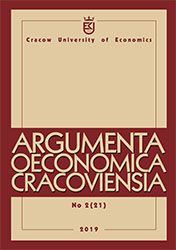The Political Economy of Global Inequality: An Economic Historical Perspective
The Political Economy of Global Inequality: An Economic Historical Perspective
Author(s): Kalim SiddiquiSubject(s): Politics / Political Sciences, Economy
Published by: Wydawnictwo Uniwersytetu Ekonomicznego w Krakowie
Keywords: catching-up; convergence; neoliberalism; developed and developing countries; international trade
Summary/Abstract: The aim of this paper is to evaluate how the economic gulf between advanced and less-developed countries might be narrowed by analysing the progress of their economies in historical perspective. It is an important question for the 21st century whether countries in Asia, Africa and Latin America are capable of economic convergence with the West. To answer this question we need an understanding of both economics and history. It has often been argued that the international distribution of wealth between the rich (industrialised) and poor (primary producing) countries will be narrowed or closed as a result of a trickle-down process from the technologically-advanced countries to the poor countries. This paper analyses this claim using a quantitative methodology built on data from international institutions such as the OECD, IMF and World Bank. It finds that during the last three decades there have been huge economic changes globally: structural arrangements and patterns of trade have changed in both advanced and developing countries. However, while some developing countries have achieved faster growth rates than the advanced economies – particularly China, India, Indonesia, and Turkey – most developing countries have not been able to catch up with the economies of the developed world.
Journal: Argumenta Oeconomica Cracoviensia
- Issue Year: 2/2019
- Issue No: 21
- Page Range: 11-42
- Page Count: 32
- Language: English

